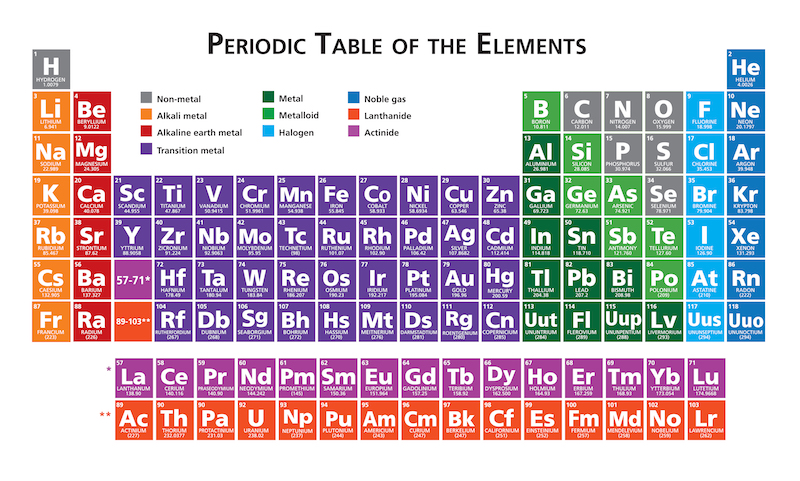Is There an Element Zero?

The periodic table contains a wide array of elements, numbered from one (hydrogen) to 118 (oganesson), with each number representing the number of protons stored within an atom's nucleus. Scientists are constantly working to create new elements by cramming more and more protons into nuclei, expanding the periodic table. The effort sparks curiosity and questions: Can the table be enlarged in the opposite direction? Is it possible to make an element zero? Does it already exist?
"Element zero" has been a matter of conjecture for nearly a century, and no scientist searched more ardently for it than German chemist Andreas von Antropoff. It was Antropoff who placed the theoretical element atop a periodic table of his own devising, and it was also he who thought up a prescient name for it: neutronium.
You don't widely hear Antropoff''s name today, as his Nazi leanings earned the scientist international disgrace. You do, however, hear about neutronium. Today, the term commonly refers to a gaseous substance composed almost purely of neutrons, found within the tiniest, densest stars known to exist: neutron stars.
Neutron stars are the collapsed cores of large stars. Just twenty kilometers wide, they hold the mass of one to three Suns. The incredible mass comes from how they are composed. The stars are made up almost entirely of neutrons clumped together by intense gravity. Neutrons normally exist only within nuclei of atoms, making their congregation an astronomical rarity, and deserving of a cool name, the aforementioned "neutronium". (Image: The structure of a neutron.)
But is the stuff also worthy of the title "element zero"? Neutronium is theoretically devoid of protons, so on face value it fits the bill, as no protons would mean no atomic number. With that said, such a definition would certainly require some creative thinking. Neutronium only dwells under the crushing gravity of a neutron star. Extract a teaspoon of the stuff (roughly equal to the mass of a mountain) and it will decay almost instantly with "tremendous" radioactivity. To consider neutronium a stable element we'd almost need to think of a neutron star as an atomic nucleus.
That's a massive stretch.
(Author's Note: Some learned commenters have correctly pointed out that elements don't have to be long-lasting to be considered elements. This strengthens the case for neutronium as element zero!)
Sign up for the Live Science daily newsletter now
Get the world’s most fascinating discoveries delivered straight to your inbox.
Original article on RealClearScience.











